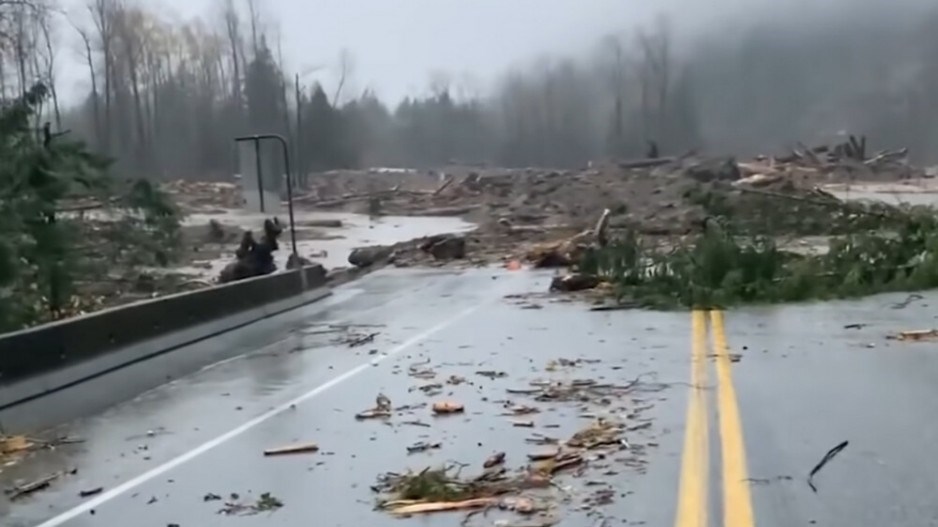It took just days for storms to batter B.C., shut down highways and flood communities over the weekend and into Monday. The full financial cost of this deluge may not be known for at least a month, according to one expert.
“It is very early days,” said Rob de Pruis, the director of consumer and industry relations at the Insurance Bureau of Canada (IBC). “There is going to be significant damage to many of these different communities and that can be traumatic.”
He said insurers haven’t had enough time to quantify the number of claims or the total dollar amounts likely to be claimed as a result of the extreme weather event that has closed dozens of B.C. highways, cut power to thousands and forced evacuations.
“People were just evacuated and there's still lots of flooding that's happening around,” said de Pruis, whose industry association represents the country’s private insurers.
“We probably won't have that information for about a month or so.”
Severe weather caused $2.4 billion in insured damage in 2020, according to IBC data released in January. de Pruis said between 2000 and 2010, the Canadian insurance industry was paying out an annual average of $600 million for such claims.
“We are seeing more frequency and more severity of these weather events in this past decade than we have in the previous years,” he said.
“So it is something that the insurance industry has taken notice of and they are developing products to help provide that financial protection.”
For example, overland flood coverage began emerging in 2015 and de Pruis said about half of British Columbians have purchased the optional coverage.
Regarding the potential for insurance costs to go up, he said the insurance industry is well capitalized for events such as the B.C. storm. But de Pruis noted that just as these events are increasing in frequency, the cost of rebuilding has also been increasing.
“We need to work together — both with government, stakeholders and the insurance industry — to really help build more resilience, and try to identify areas and determine what can we do to help prevent or mitigate some of these damages from happening in the future,” he said.
Meanwhile, many of the southern B.C. communities hit hard by the recent storm are also still reeling from this summer’s wildfires.
“It's very, very difficult for people. Compounding that is just the pandemic that we have as well,” de Pruis said.
“So right now if you have been evacuated or if you know that you have damage, don't delay, reach out to your insurance representative right away and start that process because there are some coverages available to you.”
The IBC has launched a Community Assistance Mobile Pavilion (CAMP) to field insurance questions from B.C. policyholders dealing with fallout from the recent storm. The CAMP initiative operates virtually via phone, email and social media, as many B.C. residents are still be displaced.
The IBC is also urging policyholders to prepare for flooding events by following four steps:
1. Keep a current and detailed home inventory.
2. If your neighbourhood is prone to flooding, take precautions throughout your house and property.
3. Assemble a disaster safety kit.
4. Create a 72-hour emergency preparedness plan for your family.




